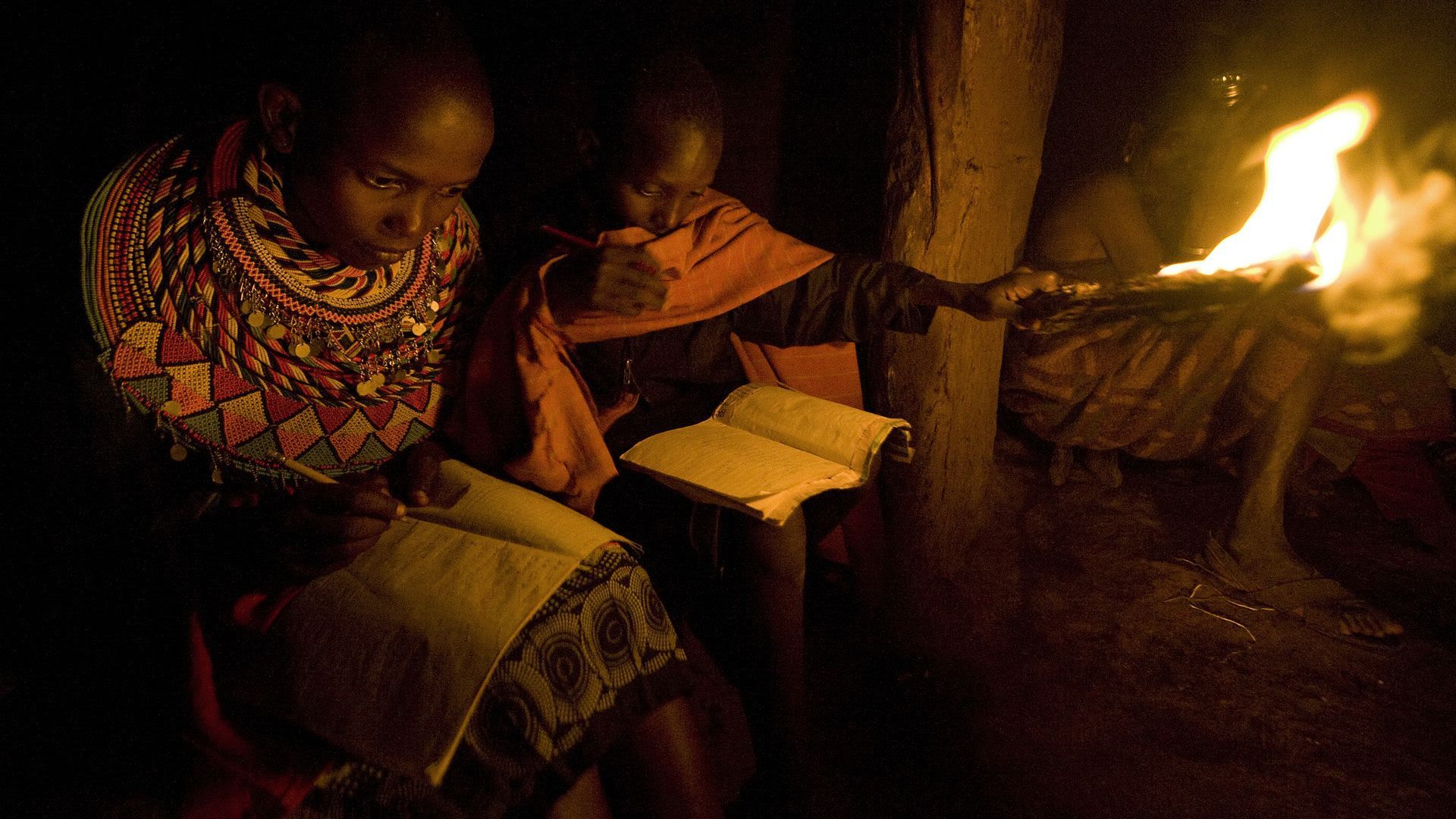Over 3.5 billion lack reasonably reliable access to electricity
Add Axios as your preferred source to
see more of our stories on Google.

Children study by firelight in Kenya. Photo: Tony Karumba/AFP
New research suggests that the true number of people around the world who lack reliable and regular access to electricity is many times higher than previously estimated.
Why it matters: Access to affordable, reliable and sustainable electricity is a requirement for modern life, and enshrined in the UN's Sustainable Development Goals. But fair access needs to go beyond a few lightbulbs and enable full participation in an electrified world.
Background: According to the UN — which has the goal of achieving universal energy access by 2030 — the number of people without access to electricity declined from 1.2 billion in 2010 to 789 million in 2018.
- That still leaves 1 in every 10 people around the world in the dark. But gaining access to electricity doesn't necessarily mean you can rely on it.
What's happening: In a paper published this week in The Electricity Journal, researchers tried to calculate global numbers around what they termed "reasonably reliable" access to electricity.
- The researchers examined the frequency and duration of power outages around the world to determine what they categorize as a base level for electricity service.
- Based on their calculations, more than 3.5 billion people — most of them concentrated in sub-Saharan Africa and South Asia — lack reasonably reliable access to electricity.
Yes, but: That number includes the population of India, which has uneven but improving electricity service.
- Even with a more generous definition of electricity access that would include India, the researchers still conclude that more than 1.6 billion lack reasonably reliable service — twice the UN figures.
Of note: Even these numbers don't get at the yawning gap in energy access between rich countries and poorer ones.
- The development expert Todd Moss, one of the authors of the new paper, noted in a piece last year that Californians alone use more electricity for video gaming than the entire country of Kenya uses for everything.
- " The data shows that basic access is just the very first step," says Moss. "Nearly half the planet is still being held back."
The bottom line: The future will be electrified, and those who can't plug in will be left behind.
